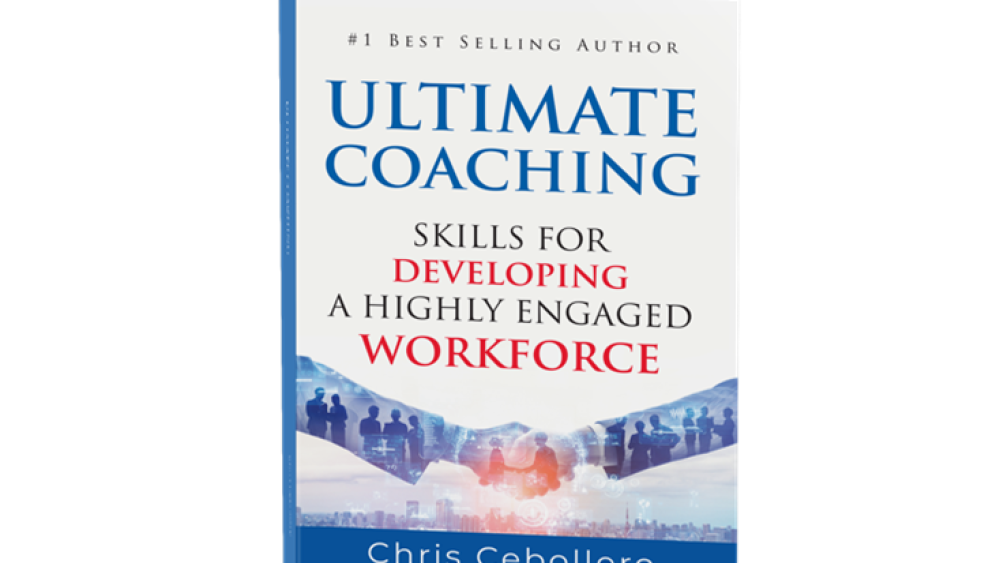The following excerpt is Chapter 2, “Coach Yourself First,” from the book “Ultimate Coaching: Skills for Developing a Highly Engaged Workforce,” by Chris Cebellero. Get the book on Amazon.
For more with Chris and cohost Kelly Grayson, check out the Inside EMS podcast.
“When developing your coaching skills, it is paramount you coach yourself first. How can you effectively motivate others to reach goals if you cannot even motivate yourself to reach your own goals”? – Chris Cebollero
Coach Yourself First
When we think about coaching and motivating the members of a workforce, we know it is essential for any leader. Remember, as we begin this chapter, leadership is an action, a verb, not a noun. It is not in a title, achievement, or a position. It is all in your actions through which you can influence people to follow you. If you can influence them, you can or are already leading them.
Yet, one of the missing components to being successful at motivating others is the failure to keep ourselves motivated. In fact, this is the part we often neglect. Self-leadership and self-motivation are the toughest tasks you will have to master in your leadership career. To be honest, motivation is one of the most significant missing attributes of many leaders out there.
Therefore, this chapter focuses solely on self-motivation and being your own coach first before you can coach someone else.
Why do we fail when it comes to Self-Motivation?
Before I get into self-motivation, I want to share a bit about the missing component that leads to failure in this department. A secret here is, what if I tell you this isn’t necessarily an issue of the lack of self-motivation?
Let’s create a scenario to better understand what I am trying to say. It is New Year’s Eve! There is an excitement in the environment for the New Year. As we are enjoying our umpteenth adult beverage, telling our big fish stories, we always get around to the inevitable New Year’s Resolution. “This year, I am going to get into better shape.” “This year, I am going to find a new job.” “This year, I am going to get married.” “This year, I am going to graduate.” Then as the New Year goes on, we forget about the goals we had set in the beginning, and we are right back on the same page we were on the previous New Year’s Eve, a page with a list of things we want and wish to do. So, what really happened? Why are we stuck on the first page? Let’s look at this in a different way.
We set a goal with good intentions to turn it into a reality. However, there are always some speed bumps, hurdles, and obstacles along the journey that seem to get in the way. That’s when we get derailed from the initial goal, and the chances are, we may even forget about them.
Now, there is a secret behind this failure. One of the primary reasons we fail is not because of the lack of motivation or commitment to a goal, but instead because we have not developed the ‘habit’ of adding this new goal of ‘what we want’ to our already established daily routine.
Think about it. Let’s assume you wish to lose weight. Ask yourselves, where does losing weight fit into your daily routine, or are you planning on going to the gym? The missing component in reaching your goal of success is where it will fit into your everyday schedule?
When we set off to develop a new goal, we must remember to make space for this goal and find out where it fits into our daily routine. Les Brown has a great quote that helps us understand how we need to adjust ourselves according to our goal, “To get something you’ve never gotten, you have to do something you have never done.”
You must be prepared to give up on something to get something. If you are looking for the next big success or the achievement of a new goal in the same everyday habits, you will never find it. If it were there, you would have already found it. You will have to create a new daily routine for something new you want to add to your ambitions. You must be ready to give something up to adjust something new—more on that in a minute.
You must break the chain of your already established daily routine or maybe replace something old with something new. People ask me all the time, “How the heck are you finding the time to write some of the greatest and most outstanding leadership books around?” To be honest, they are only asking: How do I find the time to write books, I threw the “greatest” and “most outstanding” in just for dramatic effect. When you’re an author you get to add a dramatic flair every now and again.
All the fun aside, I found the time to write by giving something up and creating a new daily routine. As I began this project, I spent an hour every evening watching Seinfeld, which makes around five hours a week watching mindless TV. However, when I started putting my pen down on the paper for this work, I gave up my one hour of TV time and dedicated it to solely writing every night.
Self-published
© 2021 by Chris Cebellero













